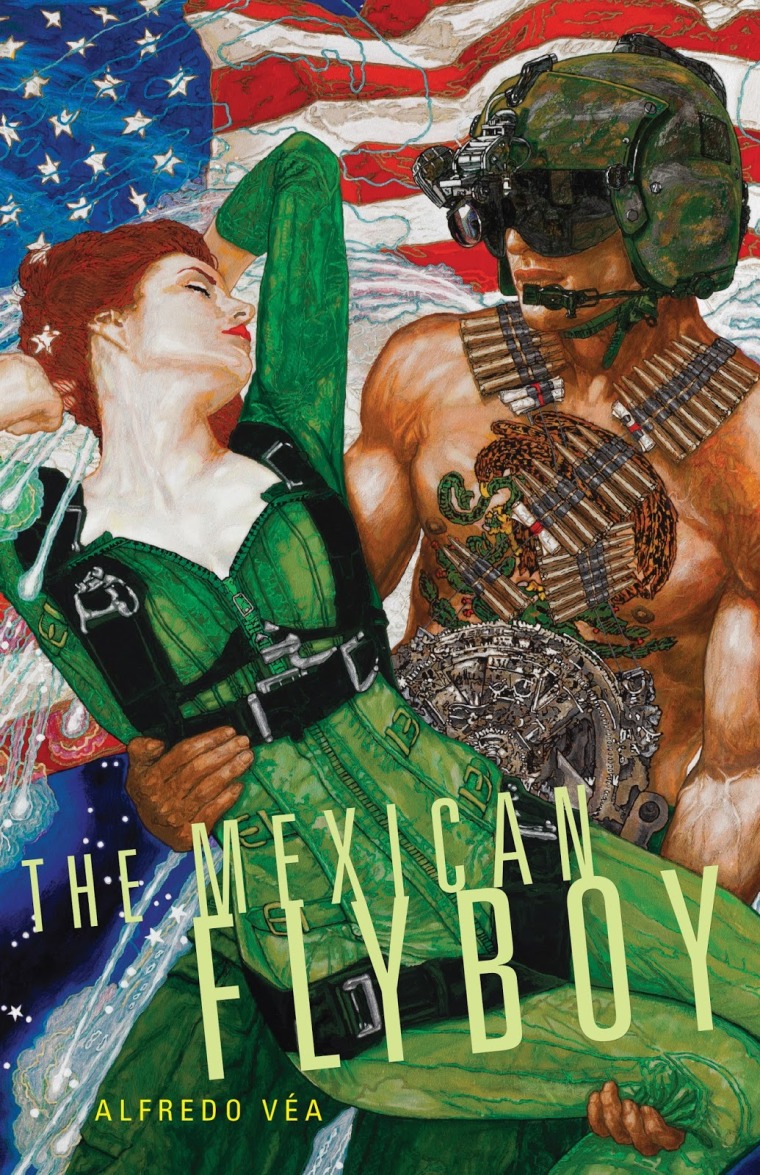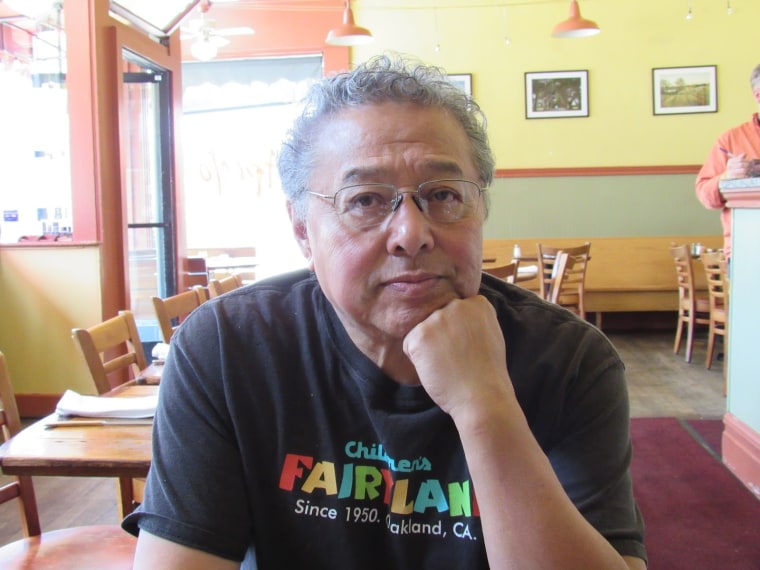A time machine that can rescue historical figures from their unjust deaths? That's the premise of Alfredo Véa's fascinating and much-awaited new novel.
The Mexican Flyboy (University of Oklahoma Press, 2016) works with a conceit that requires plenty of trust in Véa’s imagination: Simon Vegas, “a mediocre poet who suffers from shell shock,” has unlocked the secrets of a device created by the ancient Greek inventor Archimedes, which was “built to bring comfort, not pain; enlightenment, not callousness.”
More precisely, it’s a time machine that can be used to rescue people from their unjust deaths, but without changing the course of history, given that Simon hides them away in present-day Boca Raton on the shores of Florida, what he calls his “Mexican heaven.”
It is here that a commune of martyrs begins to grow: Emmett Till rooms with Jesse Washington, each rescued from a lynching, their neighbors include Ethel and Julius Rosenberg, Amadou Diallou and Joan of Arc.

For those of us who have been fans of Véa's work, the book follows an unbearable silence of nearly two decades from the San Francisco-based author and attorney. Véa had published three great novels in the 1990s that brought a fresh voice to the Chicano canon, one with a penchant for working with a large and memorable population of secondary characters of all ethnicities and identities.
La Maravilla (1994) tells the touching story of a young boy who is sent to live with his grandmother, a curandera in a community of misfits just outside the Phoenix city limits. The Silver Cloud Café (1996) revolves around the personal and professional life of Zeferino Del Campo, a lawyer in the Mission District who must contend with his own history, its demons, before helping his latest client who stands accused of a vicious murder. Gods Go Begging (1999) also features a lawyer and Vietnam veteran whose PTSD becomes exacerbated while defending a case involving a double homicide.

Now with "The Mexican Flyboy," Véa wrestles with the big issues of justice and forgiveness in a completely new way.
Since the protagonist Simon Vega's mission is a secret one of sorts, there’s very little public glory in being history’s superhero, and even his closest confidantes—his wife, his best friend—are stumped by his dedication to this cause. “Who on earth does this help?” he’s asked, and he answers, “Every time I do it I’m sane for another minute, another hour. Brick by brick, I build my own world—one I can live with.”
Véa shapes an alternate universe in which the injustice of mercy denied is rectified.
Indeed, Simon lives in a very troubled space. He brings poetry to the prisons, attempting to convince inmates to give language to their repressed emotions, yet his own are trapped between the memories of two deaths he could not prevent.
The first (a skydiver’s) took place when he was a boy working in a wine vineyard, and the second (a Vietnamese child’s) took place shortly after he was drafted. Until he figures out how to rescue these two people from that moment of suffering, he continues to time-leap, honing his skill.
Though the novel takes great liberties in its noble premise, its true essence is in how Véa wrestles with the philosophical questions about crime and punishment, penance and absolution.
He will ask a convicted killer, “Do you ever wish you could go back in time and stop yourself from doing those terrible things?”
And the question appears to be directed also at the justice system and its ever-growing timeline of travesties.
Simon knows that the men he reaches out to committed those wrongs, but he’s determined to help them see beyond the confines of the holding cell. “I hate cruelty…in every form,” he says. And so, he shapes an alternate universe in which the injustice of mercy denied is rectified.
Simon’s tasks might well be the most arduous and stressful path toward healing, which makes for quite a challenging reading experience, but Véa readers will also appreciate the writer’s trademark humor in Simon’s short-lived radio show and his unparalleled ability to make the smallest character become relevant and appealing.
The "Mexican Flyboy" marks the welcome return of this exquisite storyteller. Let’s hope there is plenty more to come.